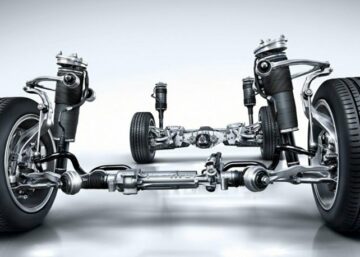A vehicle’s battery is one of the essential components of any automobile. Without it, it is impossible to start the engine and power the electrical aspects of the car. Though this device appears small, have you tried carrying it? You’d be surprised to see that it is heavy.
So why exactly is the battery heavy, or what is the weight of a typical car battery? This article discusses everything you need to know about car battery weight.
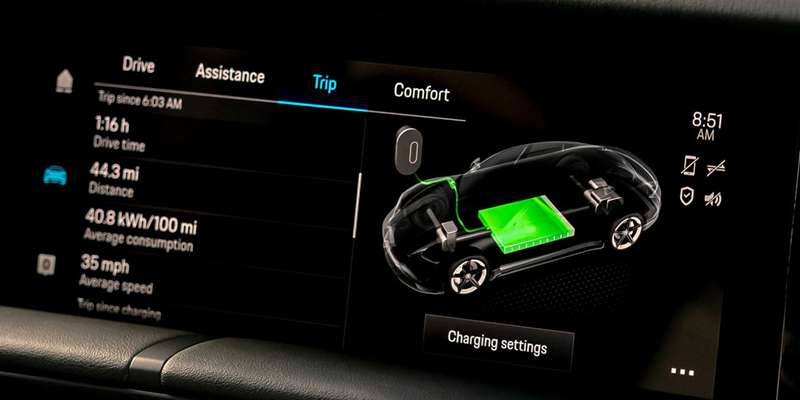 Why is the Car Battery Weight Important?
Why is the Car Battery Weight Important?
A typical area where the weight of the car battery plays a significant role in the car’s performance. The weight of the battery is linked to the car’s engine. For example, using a large and heavy battery with a car with a small engine might reduce its performance. Likewise, if the battery is too small to power the car, it won’t provide enough energy.
However, car battery weight sometimes is not that important, as the size or weight of the battery is not a true measure of its capacity. In fact, manufacturers try to reduce the weight of new batteries; as they continue to find ways to reduce the overall weight of the car, to improve its speed and other functionalities.
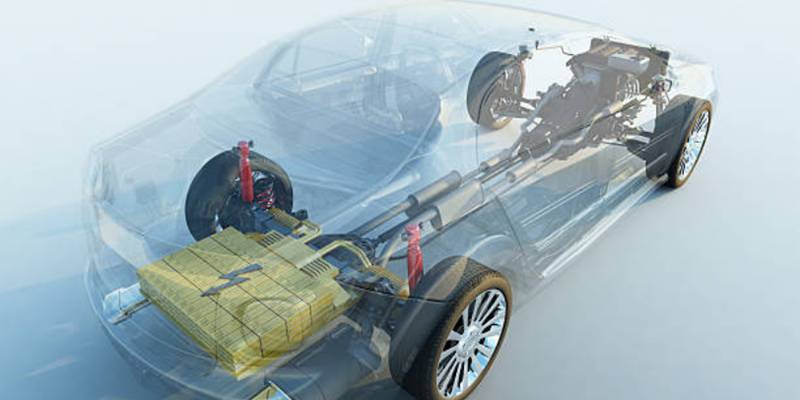 Weight Distribution
Weight Distribution
We mentioned earlier that the weight of a car battery might affect the overall car’s performance. If you examine a high-performance vehicle, you may notice its battery in the trunk instead of the hood. The reason for this is for better weight distribution throughout the vehicle.
The front of the car normally tends to contain engine parts and other components, usually heavier than the rear. Therefore, removing about 40 pounds – the weight of the car’s battery- and taking it to the trunk. That way, you enable the distribution of the vehicle’s weight across the four wheels, which is beneficial.
 How Can I Tell My Car Battery Weight?
How Can I Tell My Car Battery Weight?
Are you wondering what the weight of your car battery is and finding it challenging to find the exact value? Below are simple approaches to finding out the actual weight of your car battery.
Check the Battery Label
This is a straightforward approach, as the label of the battery contains certain details about the product, including its weight. Most batteries have their label at the top, with the weight indicated either in pounds or kilograms, including other information like battery composition and voltage. If it’s an old battery, the label may be worn out, and in such case, you should check the battery’s manual.
Check the Battery BCI Number
If your car battery is missing its label and you have no access to the manual, you can check the battery’s weight by checking the BCI number. It is a code that provides you with the unique features of the battery, including its size, type, and weight. The number is usually on the side of the battery, with a chart containing the battery’s information and weight. However, you may also use this number to access the battery’s detail online.
Ask the Manufacturer
Asking the manufacturer is another way to get info regarding your car battery; after all, they are the producer. The manufacturer will have all the necessary details, including the dimension and weight.
Common Car Batteries Weight: How Heavy Is a Car Battery?
A typical car battery weighs between 25 to 50 pounds. However, this value depends on a series of factors, such as the battery’s weight, voltage amount, etc. An empty battery weighs less, so the quantity of electrolytes in the battery affects its weight.
In addition, another major defining factor for battery weight is the vehicle type. For instance, electric vehicle batteries are different from fuel batteries.
Below are different battery types and the weight variation.
Standard Car Batteries
It is the commonest battery type in cars, SUVs, trucks, etc. The weight is usually between 30 and 60 pounds.
Lightweight Car Batteries
As the name suggests, these batteries are small-sized and common in smaller cars and electric vehicles. Their weight ranges between 10 and 25 pounds, though some may weigh more than 25 pounds. Indeed, these batteries are lightweight, but they possess enough capacity to power a car efficiently. Lithium-ion batteries are typical examples of these battery types. However, confirm that the battery suits your vehicle before making a purchase.
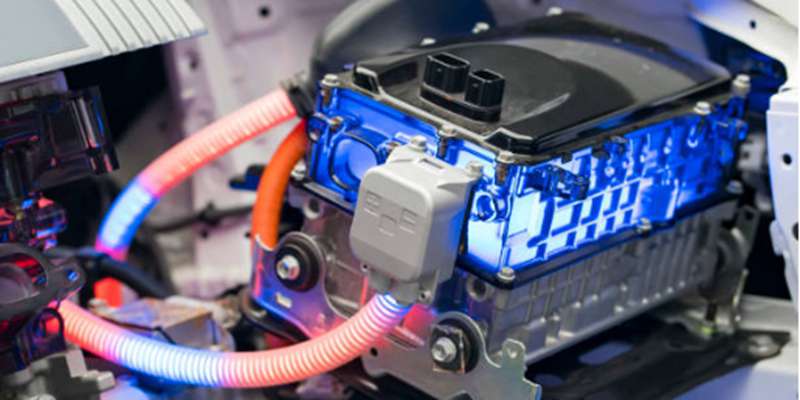 Electric Car Batteries
Electric Car Batteries
EV batteries are usually more sophisticated, as they do beyond powering the car; they act as voltage regulators. Moreover, they are the main energy source for electric vehicles, unlike fuel batteries that depend on gas and the batteries to function. That said, electric vehicles are usually much heavier – weighing more than 1000 pounds. In fact, there are such batteries that weigh up to 3000 pounds. Generally, the battery weight depends on the type, size, and maker.
Hybrid Car Batteries
Hybrid vehicles utilize two batteries; the typical 12-volt starter and the electric battery. Each battery has its unique weight; for instance, the starter battery may be a lead-acid battery or a Li-ion battery with an average weight ranging between 26 and 41 pounds. Regardless of the model, electric car batteries are usually heavier. Often between 50 and 120 pounds.
Heavy-duty Car Batteries
Heavy-duty cars require a battery with enough capacity to handle their functionalities. These are batteries in large trucks, buses, farm machinery like tractors, etc., and other large vehicles requiring ample energy. Since these vehicles are distinct, their battery weight varies. For example, the weight of batteries in buses ranges between 130 and 190 pounds, while those of tractors are between 25 and 60 pounds.
What Factors Affect the Weight of the Car Battery?
We already discussed the weight of different batteries, so you may wonder why such a vast variation exists. Here we will discuss factors affecting the weight of car batteries.
Size of the Car Battery
The size of the car battery significantly affects its weight and power. For example, you expect a small two-door car to have a different battery size than a large bus. Likewise, you expect the bus’ battery to be significantly heavier than the car’s. That said the larger the vehicle’s battery, the heavier the battery weight.
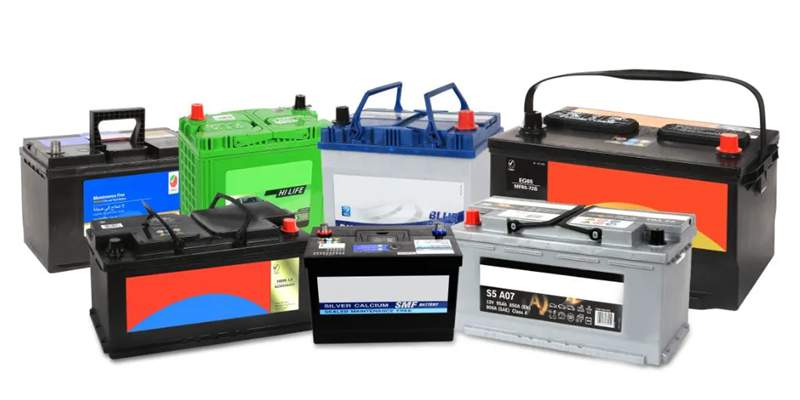 Car Battery Type
Car Battery Type
As we mentioned earlier, the larger the car, the more power is required to power the car. Hence, a larger-sized battery also suggests that it’ll be heavier. Also, we discussed different battery types, where we mentioned cars having different battery types.
Number of Internal Cells
The batteries are often divided into sections referred to as cells. The number of cells in a battery determines the amount of power it can generate. It also affects the overall battery weight. Ideally, when you have two similar batteries, the one with the higher number of internal cells is likely to be heavier.
Charge Adds Weight
A drained battery weighs less than a fully charged one. For example, a spent lead-acid battery may weigh as low as 10 to 15 pounds, with a fully charged variant weighing as much as 30 to 50 pounds. In the batteries, chemical reactions occur, so a charged one has more reactions occurring than a dying one, affecting the weight.
Amperage Requirements are High
Besides voltage requirements, car batteries also have amperage specifications that affect the battery weight. The amperage (Amps) requirement indicates the quantity of electric current available. Therefore, large vehicles that require more energy will have higher amperage requirements than smaller ones. So to enhance the current the battery generates, manufacturers have to create larger individual cells for the battery, which means increased weight.
WayKen Support for Your Automotive Project
Are you looking to make a car battery part or customize a particular component of your vehicle? WayKen is a specialist in designing your car parts. We boast highly skilled experts who are conversant with the latest technologies for your fabrication needs.
WayKen is the right manufacturer for fabricating car parts like the EV battery box design, automotive lighting parts, and more. We can also help you create or customized auto parts and prototypes for automobiles.
Besides one-stop service offers, you can also partner with us if you are looking for long-term automotive projects. In addition, at WayKen, we offer support for manufacturing operations beyond creating car parts. We provide top-notch services in CNC machining, 3D printing, injection molding, and other related technologies.
Conclusion
The weight of a car battery is not a direct measure of its capacity. However, reading this article must have equipped with knowledge of the relationship between their car battery weight and its functionality. So when looking to replace your car batteries, you know what to look out for beyond the weight requirements.
FAQs
Why are car batteries so heavy?
Car batteries are heavy because of their composition; they usually contain packed cells composed of lead and an acid electrolyte solution. The typical battery contains six such cells, and guess what? Lead is one of the densest elements in nature. However, new car batteries, such as Li-ion, AGM, Gel, etc., are not as heavy as lead-acid batteries, though they are more expensive.
How heavy is a 12 volts car battery?
The common 12 volts lead-acid car battery weighs about 41 pounds. Indeed, battery weight is not in direct relation to efficiency, but when replacing car batteries, it is advised that you get one with a similar battery weight as the former.
Are heavier car batteries more effective?
The weight of a battery is not a measure of its effectiveness. In fact, when comparing two batteries, the heavier one is often cheaper and less efficient for two batteries of similar sizes. Generally, automobile manufacturers are always finding ways to improve car efficiency without increasing the weight.
How long do car batteries last?
The durability of car batteries often depends on specific factors, such as type, usage, and manufacturer. Some batteries may last up to five years, while others often have to replace their car batteries after barely two years. Ensure to carry out routine car maintenance to keep the car batteries last.

